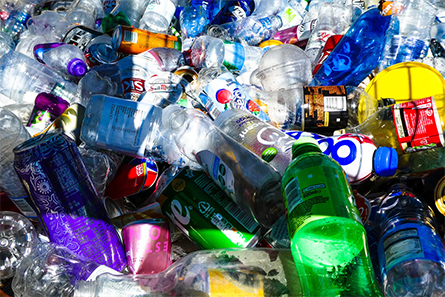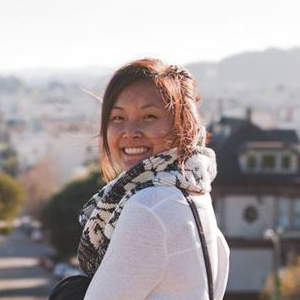Linking two enzymes turns plastic-eating bacteria into super-digesters
Plastic is everywhere. Scientists have found tiny bits of microplastic even in the extremes of the Earth – from the deep-sea of the Mariana Trench to the peaks of the Pyrenees – and damaging life around us. While source reduction can be one of the most effective ways to reduce plastic waste, how do we deal with all of the plastic that already exists, polluting our oceans and overflowing out of landfills?

Polyethylene terephthalate, also known as PET and one of the most common types of plastic, is unfortunately notoriously difficult to break down. In 2016 however, scientists found a new species of bacteria outside of a bottle-recycling facility capable of decomposing plastic. The discovery revealed that the bacteria's abilities depend on two specific enzymes. These enzymes work together in a two-step process to break plastic down into smaller molecules that the bacteria can turn into energy.
A new study published in the Proceedings of the National Academy of Sciences demonstrates a way to improve the two-enzyme system. While naturally existing as two separate enzymes – PETase and MHETase – the researchers physically linked them together. The attached enzymes worked together more efficiently than the same two enzymes when unlinked. Depending on the length of the linking segment between them, the attached enzymes were able to release almost double the amount or more of the final broken down product.
With this process, PET, could be broken down by the bacteria in days, a process which would take hundreds of years in the environment.
But breaking down plastic only deals with part of the issue of plastic waste. Recovering the plastic waste already in the ocean and other corners of the planet to deliver to recycling or decomposing facilities remains a daunting challenge. And even faced with the knowledge that we need to reduce plastic, the world has only been ramping up its production levels. Although these results are exciting, we're still far from solving our growing plastic problem.
This story originally appeared on Massive Science, an editorial partner site that publishes science stories by scientists. Subscribe to their newsletter to get even more science sent straight to you.
Enjoy reading ASBMB Today?
Become a member to receive the print edition four times a year and the digital edition monthly.
Learn moreGet the latest from ASBMB Today
Enter your email address, and we’ll send you a weekly email with recent articles, interviews and more.
Latest in Science
Science highlights or most popular articles

Avoiding common figure errors in manuscript submissions
The three figure issues most often flagged during JBC’s data integrity review are background signal errors, image reuse and undeclared splicing errors. Learn how to avoid these and prevent mistakes that could impede publication.

Ragweed compound thwarts aggressive bladder and breast cancers
Scientists from the University of Michigan reveal the mechanism of action of ambrosin, a compound from ragweed, selectively attacks advanced bladder and breast cancer cells in cell-based models, highlighting its potential to treat advanced tumors.

Lipid-lowering therapies could help treat IBD
Genetic evidence shows that drugs that reduce cholesterol or triglyceride levels can either raise or lower inflammatory bowel disease risk by altering gut microbes and immune signaling.

Key regulator of cholesterol protects against Alzheimer’s disease
A new study identifies oxysterol-binding protein-related protein 6 as a central controller of brain cholesterol balance, with protective effects against Alzheimer’s-related neurodegeneration.

From humble beginnings to unlocking lysosomal secrets
Monther Abu–Remaileh will receive the ASBMB’s 2026 Walter A. Shaw Young Investigator Award in Lipid Research at the ASBMB Annual Meeting, March 7-10 in Washington, D.C.

Chemistry meets biology to thwart parasites
Margaret Phillips will receive the Alice and C. C. Wang Award in Molecular Parasitology at the ASBMB Annual Meeting, March 7-10 in Washington, D.C.

